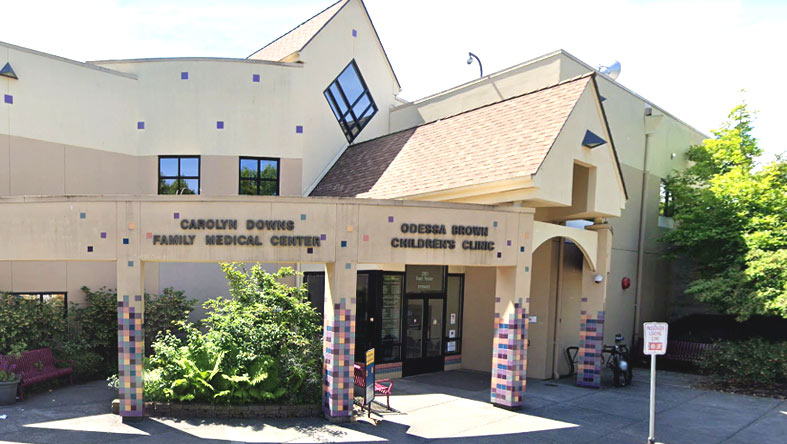While February is Black History Month, black history shapes every day of our lives in Washington state. For example, did you know that the Black Panther Party (BPP) founded free community health-care clinics across America—including in Washington?
The Black Panthers recognized that African-Americans were suffering on many fronts, including hunger, poverty, police violence, redlining, and a lack of access to medical care. So, they started “survival projects” to provide these missing resources to communities across the country, including free clinics. Of the 13 original BPP-founded free clinics, only one is still operating: the Carolyn Downs Family Medical Center in Seattle.
Carolyn Downs joined the Black Panther Party around 1972, at the age of 19. She put all her energy into the work. She cooked free breakfasts and community dinners, drove buses for prison visits, and worked in the Seattle BPP’s Sydney Miller Free Medical Clinic to provide sickle cell anemia testing, as well as to care for new moms and babies.
The Sydney Miller clinic operated on a shoestring. They had part-time volunteer doctors and inadequate facilities. The BPP wanted to offer comprehensive medical care to Seattle’s black community, but they didn’t have the resources. The Seattle Black Panthers temporarily closed their clinic, planning to open one that was well-funded enough to meet the community’s needs. To make the new clinic a reality, Seattle BPP co-founder Elmer Dixon asked for Carolyn Downs’ help.
With her skills as an organizer, Carolyn was able to document what the BPP already knew: There weren’t enough doctors treating black patients in Seattle. She and Elmer Dixon worked with Country Doctor Community Clinic, International District Community Health Clinic, and Sea Mar Community Health Center (all of which became Community Health Plan of Washington partner CHCs) to put the data together. Ultimately, using information gathered from community meetings and CHC partnerships, they proved to the federal government that Seattle’s black community was being underserved, and that there was a need for a free clinic.
In 1978, the Black Panthers’ clinic reopened its doors. The same year, Carolyn Downs died of cervical cancer—a disease that affects and kills black women at higher rates than white women. She was just 25. The clinic she helped to create was named after her: the Carolyn Downs Family Medical Center.
In 1988, the Carolyn Downs Family Medical Center joined with Country Doctor to become one organization: Country Doctor Community Health Centers (CDCHC). The Carolyn Downs Family Medical Center continues to operate today, providing excellent medical care to Seattle’s Central District.
At Community Health Plan of Washington, we try to follow Carolyn Downs’ example every day: We use evidence to guide our decisions, we trust families to know their own needs best, and we know that good health is about more than prescriptions—it’s about community.
Sources:
- “Deaths and funerals.” Seattle Daily Times, 21 July 1978, p. 38.
- Jeffries, Judson L., editor. On the Ground: The Black Panther Party in Communities Across America. University Press of Mississippi, 2010.
- Schaefer, Kurt. “The Black Panther Party in Seattle Part 2: Seattle Panthers,” Seattle Civil Rights and Labor Project, http://depts.washington.edu/civilr/Panther2_schaefer.htm.
- Willmsen, Christine. “Black Panther Party’s legacy to help sick, poor lives on at Seattle health clinic.” The Seattle Times, 25 April 2018, https://www.seattletimes.com/seattle-news/black-panther-partys-legacy-to-help-sick-poor-lives-on-at-seattle-health-clinic/.

